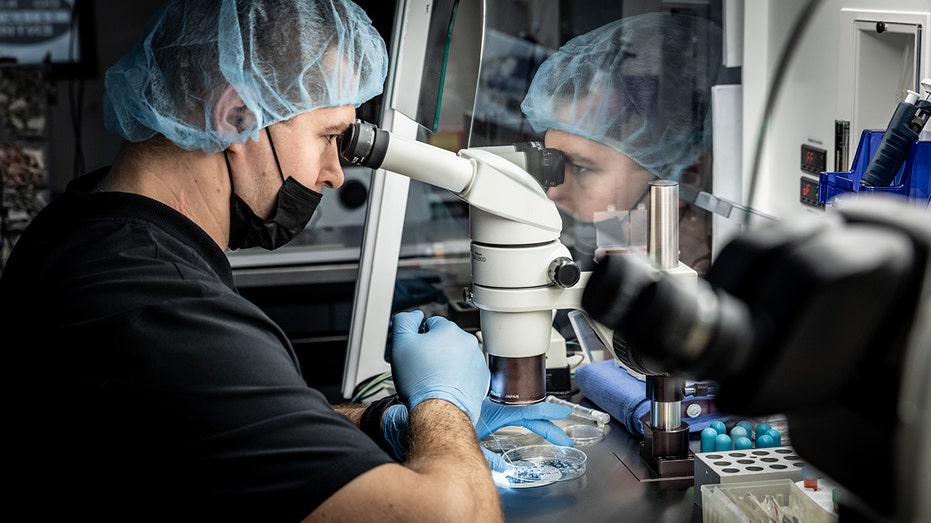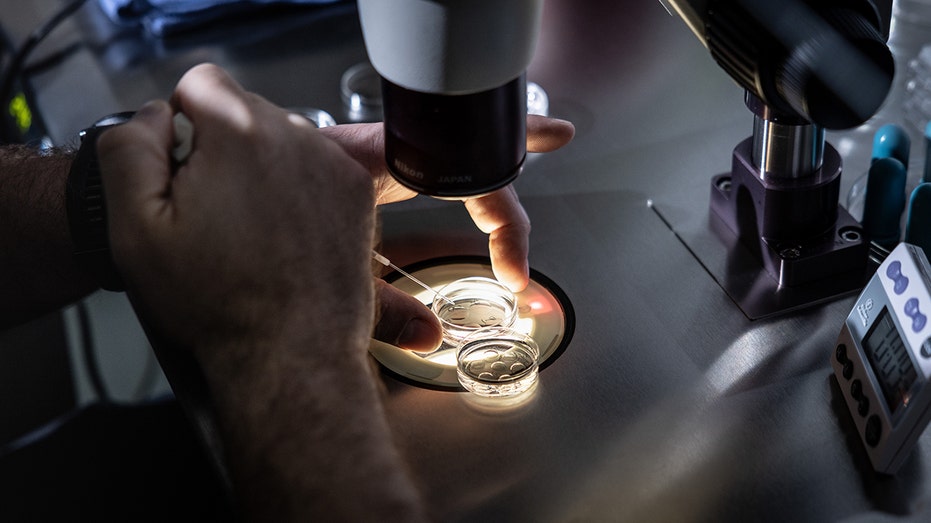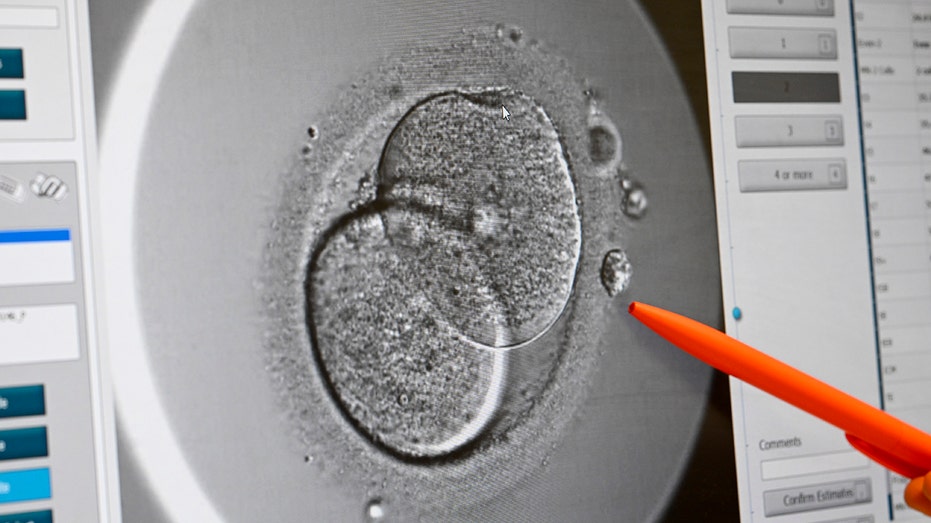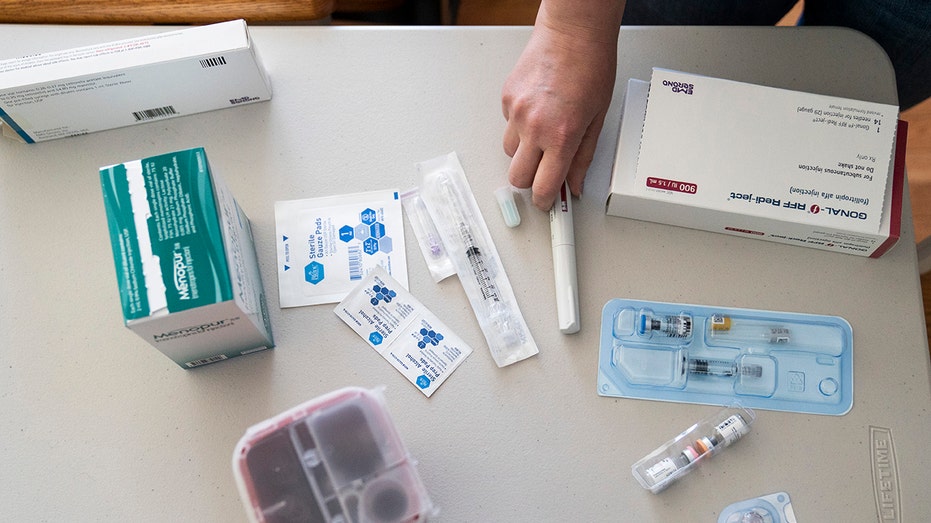IVF: The financial burden families could face
As of September 2023, 21 states and Washington, DC, have passed fertility insurance coverage laws
The cost of fertility treatment in vitro fertilization (IVF) can be exceptionally high when not covered by insurance, creating barriers for many people seeking to become parents.
According to Arc Fertility, the cost of the process can "vary greatly" depending on the state, the fertility clinic, specific treatment requirements and any additional services needed.
The treatment, used to help women who have difficulty becoming pregnant, has been at the center of a political debate that began last month, when the Alabama Supreme Court ruled that frozen embryos created through IVF should be considered children. This has led some fertility clinics to pause their procedures.
CALIFORNIA FERTILITY CLINIC IS GIVING AWAY $20K IN IVF SERVICES TO 'THOSE IN NEED'

Illia Brusianskyi, a senior embryologist at West Coast Fertility Centers, in Fountain Valley, California, prepares embryos for genetic testing on Feb. 29, 2024. (Jay L. Clendenin/for The Washington Post via Getty Images / Getty Images)
On Wednesday, Alabama Gov. Kay Ivey signed into law a bill that protected IVF treatments. Some fertility clinics that paused IVF services are expected to resume them.
A growing number of adults are using IVF to start a family. According to a September 2023 Pew survey, about 42% of adults have either used or know someone who has used fertility treatments, up from 33% five years ago.
A single cycle of IVF can cost between $14,000 and $20,000, according to Arc. It noted that this is an approximation and does not include medication, genetic testing, egg storage fees or cryopreservation, which is when biological material is frozen to preserve the material.
MANAGING THE HIGH COST OF INFERTILITY
Arc offers fertility treatments through its network of partner clinics across the U.S. It provides fertility treatment packages, discounted fertility medications and financing options to help patients get access to this treatment.

llia Brusianskyi, a senior embryologist at West Coast Fertility Centers, in Fountain Valley, California, adds media to petri dishes containing embryos, before freezing the embryos on Feb. 29, 2024. ( Jay L. Clendenin/for The Washington Post via Getty Images / Getty Images)
The cost of a single cycle also does not include costs associated with a doctor’s original infertility diagnosis either, according to Oregon-based ORM Fertility.
One cycle includes a sequence of phases from ovulation stimulation, egg retrieval, insemination and embryo implantation. The process can take multiple cycles. According to ORM Fertility, a person can become pregnant after only one IVF cycle, but in some cases, it could take six or more attempts. A full cycle of IVF takes about two to three weeks, according to Mayo Clinic, but the process can take longer if the steps are split into different parts.

A four-cell organism can be seen on a screen in the cell laboratory at the Fertility Center Berlin. (Jens Kalaene/picture alliance via Getty Images / Getty Images)
The medications for IVF can also vary significantly depending on various factors including what type is being taken, the dosage and the length of the stimulation phase, according to Arc.
The average, though, can range between $3,000 and $6,000 per cycle, according to Arc, which noted that these are rough estimates and could differ depending on individual circumstances as well as insurance coverage.
If an egg or sperm donor is needed, that is another added cost.
GET FOX BUSINESS ON THE GO BY CLICKING HERE

Nina Osborne, who has done several rounds of IVF in hopes of fulfilling her lifelong dream of having children, goes through her IVF medications at home in Parkville, Maryland, on May 10, 2022. (Carolyn Van Houten/The Washington Post via Getty Images / Getty Images)
On average, a sperm donation can range from $400 to $2,500 or more, according to Arc. Meanwhile, an egg donation is significantly higher and can range between $20,000 to $45,000 or more.
However, a growing number of states have passed fertility insurance coverage laws.
Twenty-one states plus the District of Columbia have passed such laws as of September 2023, with 15 of them including IVF coverage, according to data from Resolve: The National Infertility Association.
Seventeen of them cover fertility preservation for iatrogenic (medically-induced) infertility, according to Resolve.
The organization noted that fully-insured plans are required to follow state insurance laws. However, self-insured or self-funded insurance plans do not. Additionally, employers do not have to follow the state insurance laws, the organization said.





















